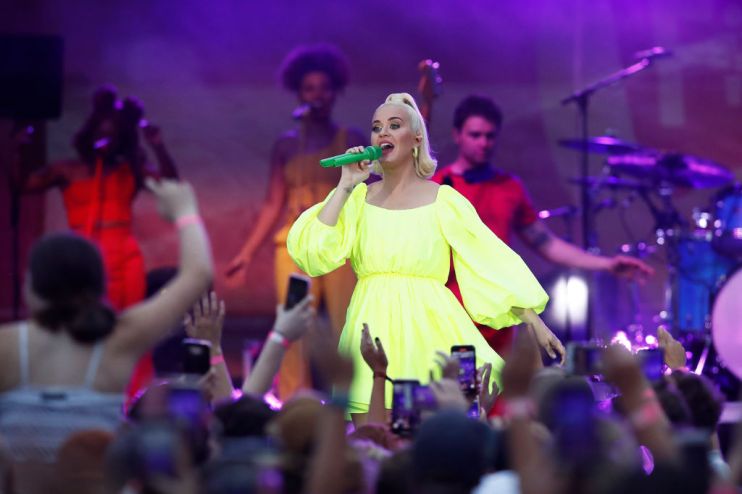Hollywood strikes ‘groundbreaking’ AI agreement with Sony, Universal, Warner and Disney

Hollywood performers and media artists have struck a “groundbreaking” agreement with major record labels to protect their work against the rising influence of artificial intelligence (AI).
The deal, covering the period from 2021 to 2026, promises higher minimum salaries and safeguards against the use of AI, according to a statement by the union that represents Hollywood actors and writers, known as SAG-AFTRA.
Warner Music Group, Sony Music Entertainment, Universal Music Group and Disney Music Group are all included in the deal.
Duncan Crabtree-Ireland, SAG-AFTRA national executive director, called it a “groundbreaking agreement”.
He said: “This agreement ensures that our members are protected. While technology can enhance the creative process, the essence of music must always be rooted in genuine human expression and experience.”
Representing around 160,000 actors and industry workers, the SAG-AFTRA executive committee unanimously greenlit the agreement.
The tentative deal mandates explicit approval and compensation before releasing songs featuring digital replicas of artists’ voices. It also specifies that terms like “artist” and “singer” refer solely to humans.
Final approval from members of the union is expected in the coming few weeks.
The Record Label Negotiating Committee said: “We are pleased to reach this agreement with SAG-AFTRA and continue our strong partnership as we enter this exciting and fast-moving new era for music and artists.
“Together, we’ll chart a successful course forward, embracing new opportunities and facing our common challenges, strengthened by our shared values and commitment to human artistry.”
AI’s growing presence in entertainment has raised concerns over the compensation and crediting of artists. Last year, SAG-AFTRA staged a prolonged 118-day strike over pay and working conditions, as well as fears surrounding AI.
After extensive negotiation they reached an agreement in November with the Alliance of Motion Picture and Television Producers (AMPTP) – which represents media companies including Walt Disney and Netflix.
The rise of generative AI in music creation has sparked concerns from many industry bodies and individuals. They say the technology enables internet users to imitate artists’ voices without consent.
Recently, 200 artists, including Billie Eilish, Stevie Wonder, and Katy Perry, voiced concerns about AI’s impact on the music industry.
In an open letter organised by the campaign group the Artists’ Rights Alliance and posted on the long-form writing site Medium, the artists said AI music-generation tools “undermine or replace the human artistry of songwriters and artists, or deny us fair compensation for our work”.
“When used irresponsibly, AI poses enormous threats to our ability to protect our privacy, our identities, our music and our livelihoods,” the letter read.
“Some of the biggest and most powerful companies are, without permission, using our work to train AI models. These efforts are directly aimed at replacing the work of human artists with massive quantities of AI-created ‘sounds’ and ‘images’ that substantially dilute the royalty pools that are paid out to artists.
“For many working musicians, artists and songwriters who are just trying to make ends meet, this would be catastrophic,” it added.